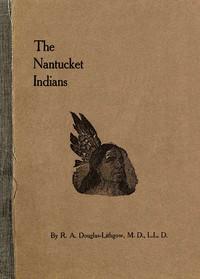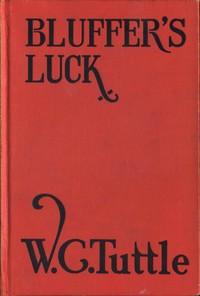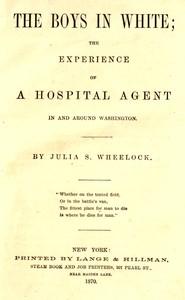|
|
Read this ebook for free! No credit card needed, absolutely nothing to pay.Words: 7639 in 3 pages
This is an ebook sharing website. You can read the uploaded ebooks for free here. No credit cards needed, nothing to pay. If you want to own a digital copy of the ebook, or want to read offline with your favorite ebook-reader, then you can choose to buy and download the ebook.

: The Nantucket Indians by Douglas Lithgow R A Robert Alexander - Indians of North America Massachusetts; Nantucket Island (Mass.) History@FreeBooksThu 08 Jun, 2023 The western half of Nantucket was sold by Wanackmamack, February 20th, 1661. In this deed "the plain" is evidently immediately west of Nanahuma's Neck from the use of the word Acamy in the deed , and its locality is further fixed by the description of its position, which agrees almost mathematically with its exact actual position. I am sorry to differ from Mr. Worth when he says: "the deed of Nanahuma indicates that at the time he was sachem over the west end of Nantucket." It might as truly be said that the co-signer was sachem over the west end of Nantucket, which we know he never was. I believe that Nanahuma was a subsidiary or petty local sachem, tributary to Nickanoose, and that all the property he owned as a sachem was restricted within the limitations already indicated. This is confirmed by his only subsequent deed, dated June 24th, 1678, by which he disposes of "all his interest in the West plains, and to the Neck or long woods" to the English. Besides, according to the delimitation of the other Sachems as already given, none of them interfered with those just mentioned as belonging to Nanahuma. Indeed, it is doubtful whether Nanahuma at this time owned the Neck which bore his name, for, on July 4th, 1664, "all the fields belonging to the Neck" were sold to the English by Pakapanessa, Jonas Kimmo and Harry, son of Wapakowet, who were probably residents of the identical "plain" which was sold by Nanahuma in 1659. Moreover, in 1667, we find Nanahuma associated with "Mr. Larry Ahkeramo" and Obadiah in a plea to the Court that "whereas the sachems had sold the ground they formerly lived on to the English, the said sachems would not entertain them on the land unsold." Curiously enough, in 1678, we find George Nanahuma, alias Cowpohanet, selling to the English "all his interest in the West plains, and to the Neck or long woods." There, verily, seems to have been a joint stock company in these lands! If Potconet had no jurisdiction over the northwest section of Nantucket, and if no evidence is in existence as to any other sachem holding predominant rights over it, may it not be suggested that it was mainly divided up into reallotments for the Indians who were dispossessed by the requirements of the whites, and over whom subsidiary sachems or sagamores were appointed, of whom there were several? Of course, this is a mere suggestion. We talk glibly and deprecatingly of the poor Indians as "mere savages", but the annals of American history afford but few instances of really nobler men than Massassoit, Passaconaway, Samoset, and Wanackmamack, the controlling Head Sachem of Nantucket. Had it not been for the high personal qualities of such men New England might not have occupied today the proud position which she now holds among the United States. The venerable Chief Wanackmamack was not only the pride and glory of his insular braves, but the tried, true, and loyal friend of the English immigrants. He was as kind-hearted and judicious as he was courageous and high principled, and he governed his home-land so ably and satisfactorily as to justify his memory in history as an exemplary ruler. Of Wauwinet little is known but that he was very old and much respected when the settlers arrived, and nothing, so far as I have been able to ascertain, has been said against him. Nicornoose, his eldest son and successor, has not a good record, as he deserted his wife and children, and had two children by another woman. Beyond the fact that Autopscot was called "a great warrior and got his land by his bow", and that he permanently established peace throughout the island, little further is recorded of him. Nor does history mention anything concerning Potconet, the sachem ruling the proximate western islands, with the exception of a record of the sale of his lands to the settlers, in 1659. Such were the rulers of Nantucket when the settlers arrived. What a revelation the incoming of the whites must have been to the red men, who had lived on the island, probably from a very early age, among their own people, under their own laws, perpetuating their own habits and customs--living close to Nature--for the most part in peace and amity--simple in their lives, and knowing nothing, caring nothing for the external world beyond them! Yet, on the arrival of the new people who had come to supplant them, they received them amicably, treated them justly, and as they treated one another, relying upon what they recognized as the instinctive and inalienable principles of humanity to govern their relationships and to promote the mutual good and harmony of all. I cannot stop to inquire who first took advantage of the racial differences which distinguished these two peoples, or how the greater intellectuality and experience of the one eventually overcame the other, but Time tells the story; and today, while the whites glory in the beauties of, and the opportunities afforded by their island home, where are the poor Indians, the aborigines? All gone--melted away like dew-drops in the sun, and not even one remains to tell the story of their past history! Free books android app tbrJar TBR JAR Read Free books online gutenberg More posts by @FreeBooks
: Studi sulla letteratura contemporanea by Capuana Luigi - Literature Modern 19th century History and criticism; Literature Modern 20th century History and criticism@FreeBooksThu 08 Jun, 2023

: The Radio Girls on the program by Penrose Margaret Gooch Thelma Illustrator - Adventure stories; Girls Societies and clubs Juvenile fiction; Fund raising Juvenile fiction; Radio broadcasting Juvenile fiction; Singing Juvenile fiction@FreeBooksThu 08 Jun, 2023
|
Terms of Use Stock Market News! © gutenberg.org.in2025 All Rights reserved.






